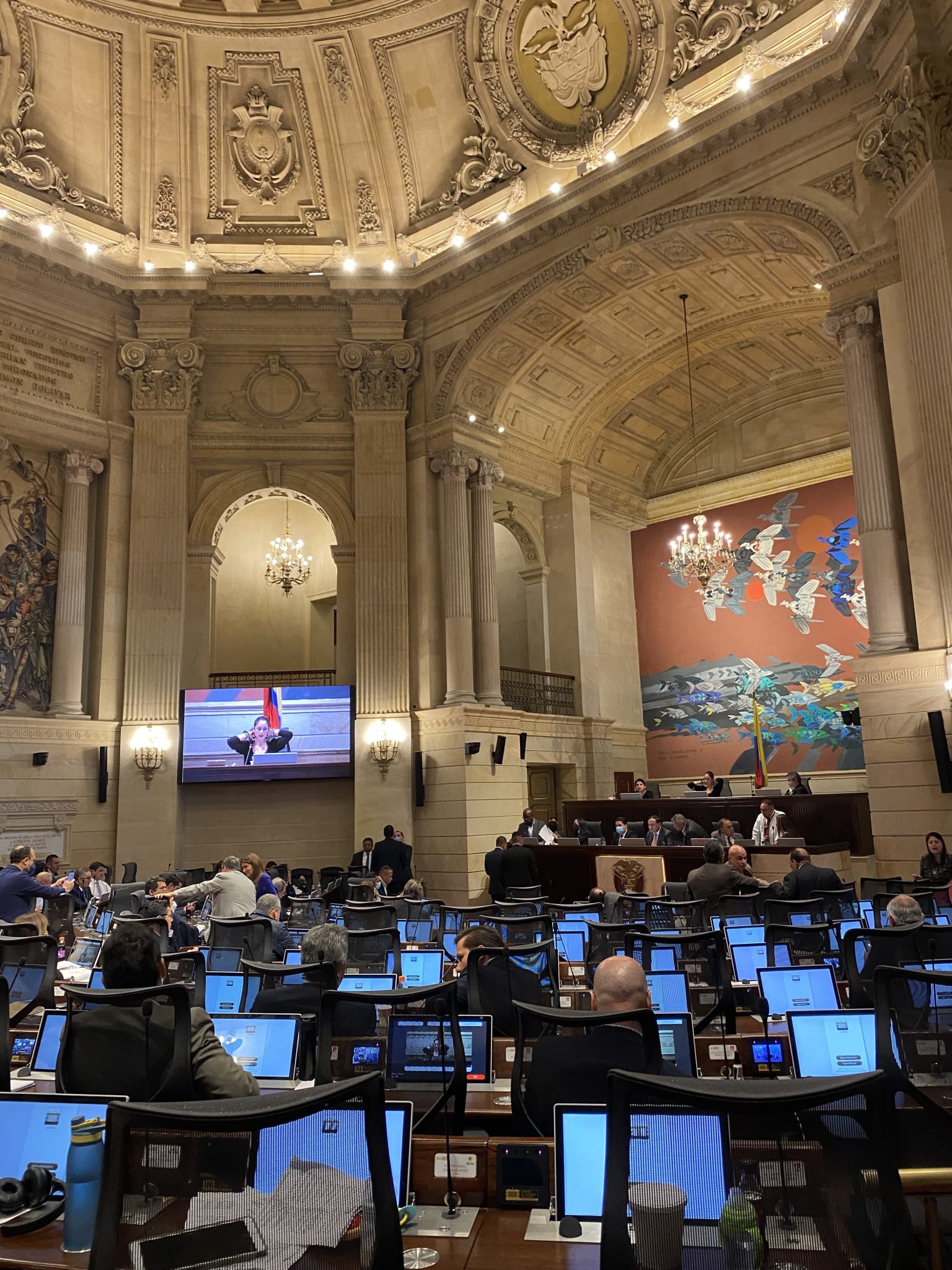Congressional Digital Transformation Bridging the Gap Between Citizens and Their Government

Recently, the House Democracy Partnership (HDP) traveled to Bogota, Colombia to implement a technical assistance consultancy (TAC). Central to HDP’s work is peer-to-peer engagement between legislators and legislative staff to share experiences, troubleshoot problems, and engage in mutual learning. This exchange focused on technological and digital transformation in the Colombian Congress to improve citizen’s access to their government.
The world is emerging from a global pandemic. While most agree the pandemic was devastating in many respects, it also left an indelible mark of progress on the behemoth institutions of government. Government often trudges last in line for technological advancement, due to cost, aversion to risk, and sometimes the age and reticence of lawmakers to embrace change. Given the immediate and intense need for technological improvement and capabilities to allow staff and lawmakers to execute their duties while in confinement, governments around the world invested in digital transformation processes that were long overdue.
HDP found this to be the case in Colombia. The pandemic brought to the Colombian House of Representatives an urgent need to update their hardware, improve their systems, and an overall need to transform the technology in Congress. Underneath the more rote process requirements were the needs of citizens to have greater and more transparent access to their government as they navigated this crisis. While staff made improvements to the tech in the House, Congresswoman Jennifer Arias – president of the House – considered how citizen engagement shortcomings could be addressed. With these needs in mind, she turned to her partners in the U.S. Congress, calling on HDP to pitch in, share experiences, provide some advice, and hopefully take away some lessons learned as well.

From the great dialogue, there was much to discuss and learn across these three unique country and institutional contexts. First, digital transformation must be citizen-user-centered. The participants and panelists alike lamented the difficulty each institution faced in developing online tools. From clunky apps to slow websites, which garnered little to no citizen traffic, it was clear the tools that Congress previously built did not meet citizen needs as intended. One panelist even remarked, they found almost 40% of visitors to their websites and online tools came from within the legislature itself. The rest of the group expressed similar sentiments. The conversation affirmed a renewed focus on citizen user centered design during future digital transformation processes.
Second, Congress should not wait for a crisis to facilitate change. Discipline in conducting regular self-assessments in an iterative process to ensure the continuity in congressional operations is critical to a healthy institution. All participants expressed the frustrations they felt, lawmakers felt, and other staff felt as the pandemic hit necessitating confinement but with no tools by which they could carry out their duties; and even more problematic they lacked the legal authority to conduct their duties outside the campus of congress. In the U.S. Congress, the Modernization Committee is convened temporarily every 25 years to assess the institution and make recommendations for change; in this fast-paced world more frequent institutional assessments might prove fruitful.
Finally, partnership is instrumental in advancing responsive and capable institutions to serve citizens; HDP is built on this model. Partnership among government, private sector, and the nonprofit and citizen groups creates healthy dialogue and as well as opportunities to leverage available resources. This TAC brought representatives from AWS to leverage their vast expertise as a technology and service company. Leveraging private enterprise can make government more effective and streamlined, gaining the advantages of private sector ingenuity. Additionally, representatives from local universities and citizen groups were able to provide their expert experiences and advice on how their groups manage, store, and analyze data to improve policy decisions; and also provide easily accessible and open-source tools that the Congress can quickly tap into to serve citizen needs.
Parliaments around the world must keep pace with the technological expectations that citizens demand, simultaneously they must ensure not to leave anyone behind; all of which is no small task. IRI continues to grapple with this challenge of supporting the use of digital tools – especially those emerging from the citizen-driven civictech community – that aim to bolster partner parliaments, local governments and CSOs in their efforts to improve responsive and effective governance. To better inform the efforts of IRI and its partners in this task, IRI’s Technology and Democracy team is developing a white paper analyzing the challenges and successful approaches to sustaining and scaling digital good governance efforts, including how funders can be more responsive to those needs, to be released in late 2022. As our institutions continue their journey of digital transformation, HDP and IRI remain committed to support the development of responsive and effective legislative institutions at home and with our partners worldwide to serve their citizens.
Top